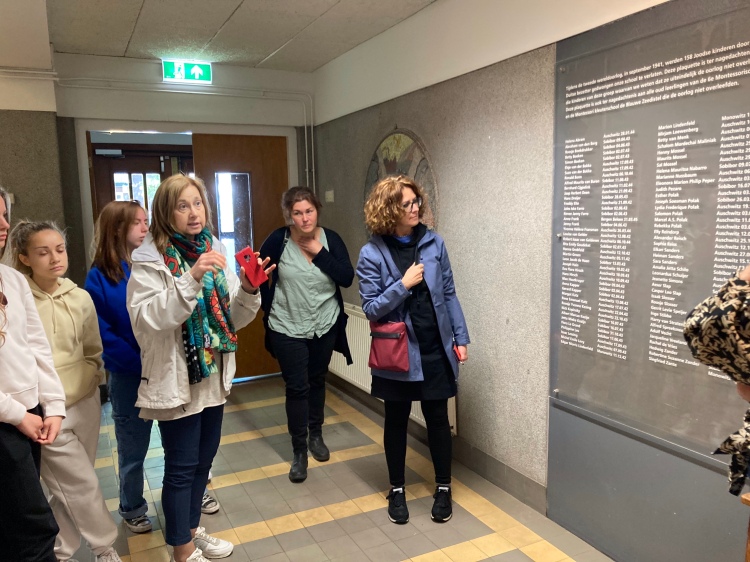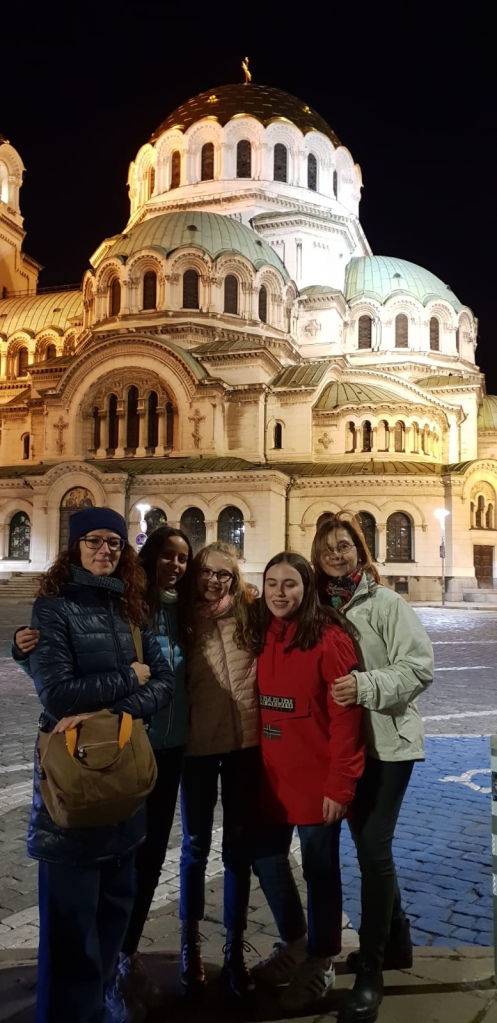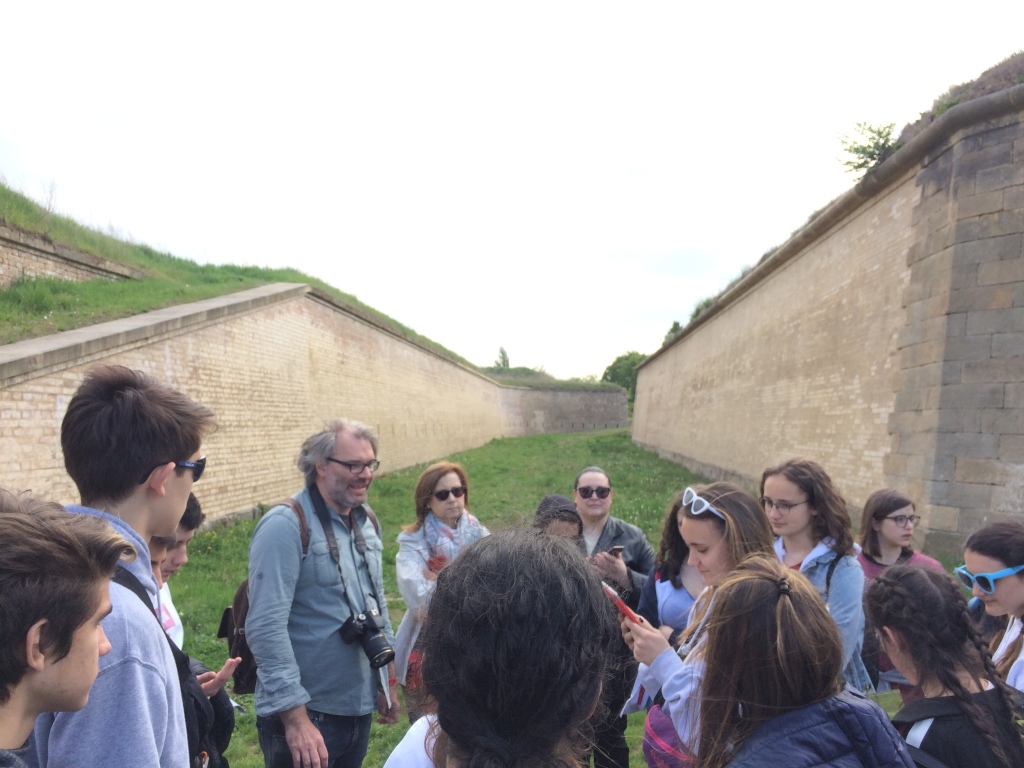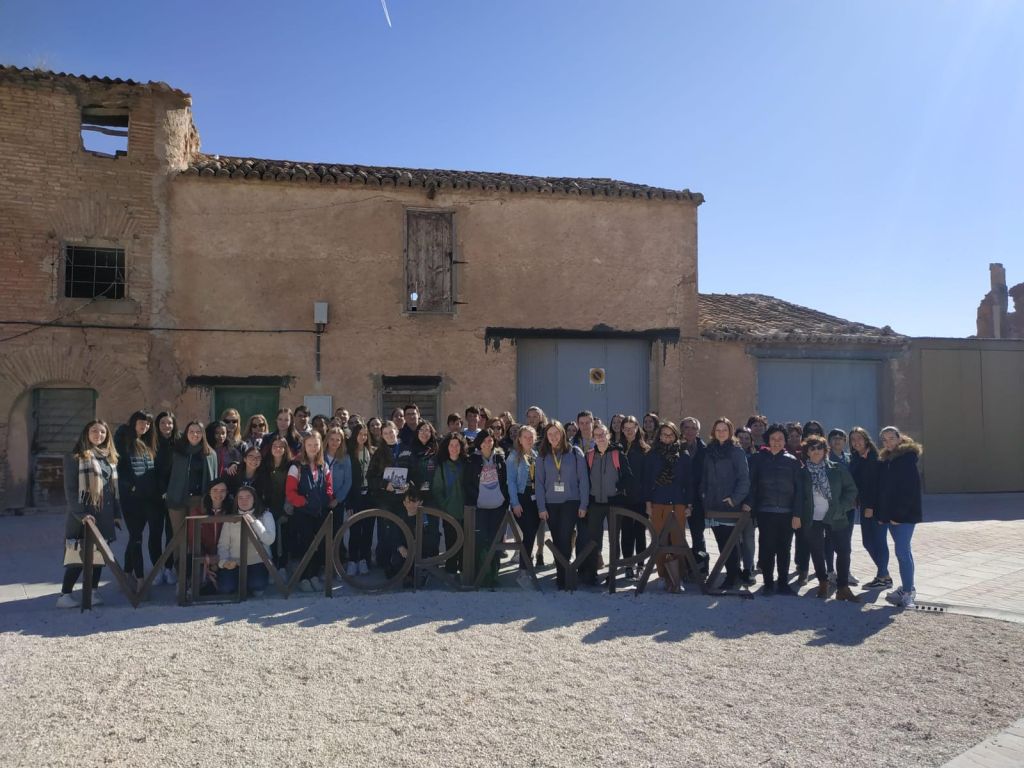di Carlotta Codazzi
3/4/2023
Oggi intervisteremo la prof. Ceruti, che progetta da tanti anni le attività finanziate dal fondo europeo Erasmus +. Ha visitato tante scuole europee e ha una grande esperienza nella realizzazione di viaggi per alunni e insegnanti. La prof.ssa Ceruti insegna inglese nella nostra scuola e, vista la sua materia, ho pensato di realizzare un’intervista… in inglese. Buona lettura!
-Si definisca con 3 aggettivi/define yourself with 3 adjectives
– First of all, hello everybody! Then, this is a difficult question, but I’ll go for positive things. Using only single words, I’d probably say I’m ‘optimistic’, then maybe ‘patient’ (my students might disagree here, but imagine if I weren’t …) and as a last one I’d say ‘independent’: I think I work well with people but I really enjoy doing things by myself, like for example long journeys on trains and planes.

-Una cosa che la rende felice/one thing that makes you happy
– Little things make me happy, like playing with my cat, reading a book or sitting quietly in a natural environment. But one thing that really makes me happy is reaching a destination, be it a real journey or the end of a fulfilling project.
-Cosa pensava di fare quando era piccola/what did you think you were going to do when you were a child
– When I was at school I wanted to do something scientific, like being an engineer, or something to do with the language, like being a journalist. I’ve ended up being a language teacher, and that’s OK.
-Perché ha scelto di partecipare al progetto Erasmus/why you chose to participate in the Erasmus project
– Because I love languages and I love teaching, and because I think that such experiences can really help students, even very young ones, become more independent, open their mind, grow up and be better citizens in future. They say Erasmus opens your mind and changes your life, and I think it’s true.

-Ha mai partecipato al progetto Erasmus da studentessa/have you ever participated in the Erasmus project as a student
– Yes, I have, but I was already a ‘mature’ student. In fact when I was at University in the 1980s such programmes didn’t exist, but then I had the opportunity to spend an Erasmus period in Leiden, the Netherlands, when I was studying for my doctoral research at the University of Pavia in 2010. A wonderful experience.
–Quali differenze ha trovato nelle varie scuole che ha visitato durante i suoi viaggi e quale modello scolastico la convince di più/which differences have you found in the various schools you have seen during your travels and which school model convinces you the most
– It would take too many pages to answer this question. The first and most important thing is that you meet people first of all. And some of them are good friends now. As for school systems, I’ve found lots of differences in timetabling, curricula, relationships with students, teaching approaches, building structures, etc. and each different school system has its own very positive and desirable aspects. Unfortunately these aspects can’t simply be transferred to our context, and that’s a pity. I love schools where there is a lot of space, like in many Northern countries, or where students can do a lot of practical activities, have access to technology, experience gender-equality in their project activities or work comfortably in mixed or open groups. But there is something good in our system, too. For example, all the foreign teachers who have visited us over the years have always appreciated the work we try to do to integrate students with special needs or students with different cultural backgrounds. This is not always taken for granted in other countries and it’s nice to know that you can contribute to raising awareness about inclusion. That’s a little step to make the world a better place.

-Quanti viaggi ha fatto/How many times have you travelled
– I honestly don’t remember. At the time of my first Erasmus trip in Galicia (Spain) in 1997, this European programme wasn’t even called Erasmus. It was called Socrates, then Comenius, after that’s LLP and finally Erasmus+. Since then I’ve visited Finland, Austria, Spain, the UK, Turkey, Bulgaria, Norway, Germany, Latvia, Slovenia, the Czech Republic, the Netherlands. I think more than forty trips in total, some with students, some with colleagues and some by myself. All of them beautiful and meaningful.
-Qual’e quello che ricorda con più piacere/Which one do you remember with more pleasure
– Again, this is a difficult question to answer. I remember the first trip to Finland in winter in 2007, it was such a different world. Or taking part in the Nobel Peace prize torch march in Oslo in 2019, that was very emotional. Or flying in a hot-air balloon in Cappadocia, in Turkey in 2015, simply breath-taking. But all trips had something important to take home and share.
-Il piatto inglese che le piace di più/ which is the british dish you like the most
– I’m a big fan of British cuisine, to be honest, but cream tea with scones and jam is really worth a try!
-Frase inglese preferita/favorite English phrase
– There are actually two catch phrases which I like a lot, and they’re not typically British English. One is ‘thanks a million’ and I first heard it in Ireland. The other one is ‘no worries’ which – I think – is more typically Australian. Then there’s the lovely -eh ending, which Canadian speakers add to their sentences, like in ‘That’s good-eh’! So, thank you-eh! Keep studying languages and … stay Erasmus!
